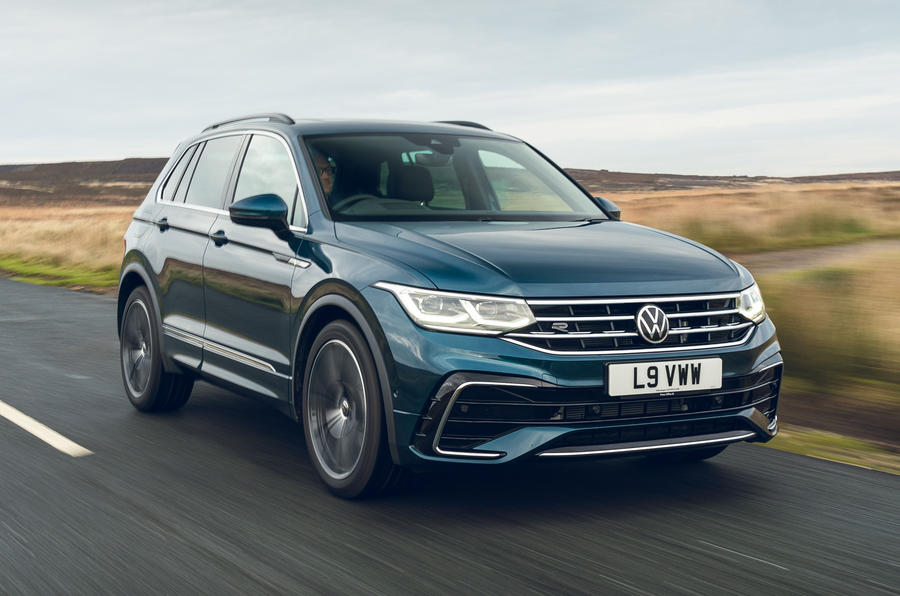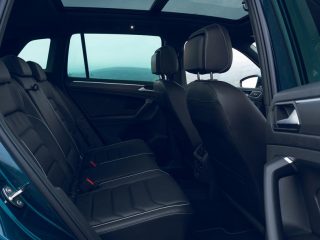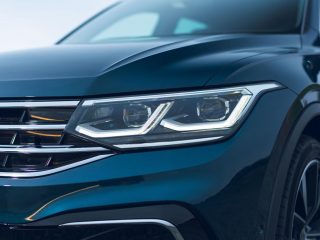VW’s diesel Tiguan has been a stalwart drivetrain, but what is its viability as the push into petrol-hybrid technology arrives?
Turbocharged Direct Injection technology (you may not know) is a Volkswagen Group invention, first used in 1989 for a TDI-badged diesel version of the Audi 100, before going on (for reasons you will know) to bring the company some quite undesirable publicity 26 years later.
Injecting diesel fuel directly into the combustion chamber is nothing new, and neither is combining that fuel vapour with ice-cold turbocharged air for a bigger bang, but its starring role in this review will no doubt spark discussion for the very fact that it runs so overtly counter to the future-thinking rhetoric at the heart of Volkswagen’s current manifesto.
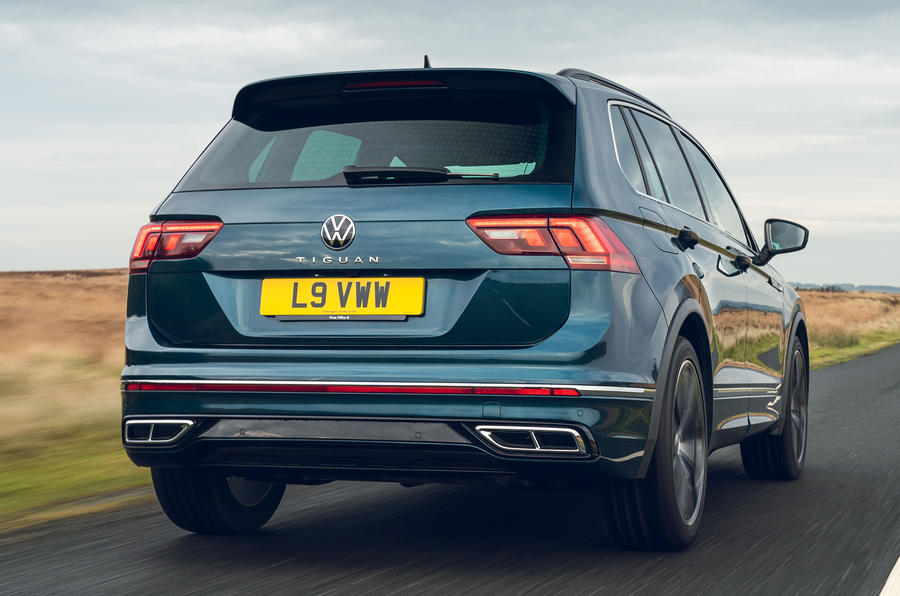
Of course, as Wolfsburg gradually expands its electric ID line-up, we’ll start to see oil-burners such as this discontinued, but for now they continue to form an integral part of the brand’s range, even after the introduction of the plug-in eHybrid into its global lineup this year.
There’s no denying the superficial appeal of such a powertrain, even in light of the social stigma that’s now grown around cars that sup from the black pump. Even the most abstemious modern petrol motors can’t quite match a diesel for long-distance frugality, and for lugging large loads – in this case likely three children, a dog and maybe a bike or two – the low-end torque will be a significant boon. But the fact remains that these cars are no longer as cheap to run as they once were – for the majority at least – and as low-emission zones are adopted and expanded across the country, their daily usage will gradually become less and less viable.
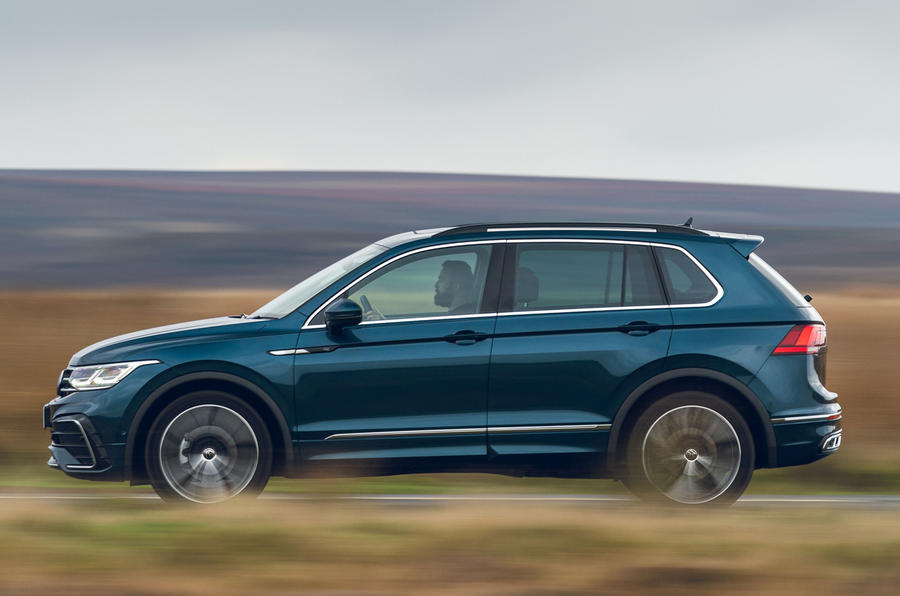
We’ve quickly become used to the impressive capability of today’s buzzy little turbocharged petrol motors, and no longer sneer at the idea of a 1.5-tonne family mover being propelled by a powerplant you might once have associated exclusively with the supermini segment. So firing up a four-pot diesel motor today – however large the car – feels slightly old-school and a tad inappropriate, especially in an urban environment that’s quickly becoming inhospitable to all cars but those that shun fossil fuels altogether.
Of course, should you live in such an area and venture only occasionally onto freeways and the like, you’re probably not considering a diesel in any case. And, indeed, this is not where the Tiguan TDI shines; there’s no mild-hybrid system here, which means no energy recuperation under braking, which in turn means you’ll no doubt waste as much fuel getting out of town as you would have saved over the course of the entire journey.
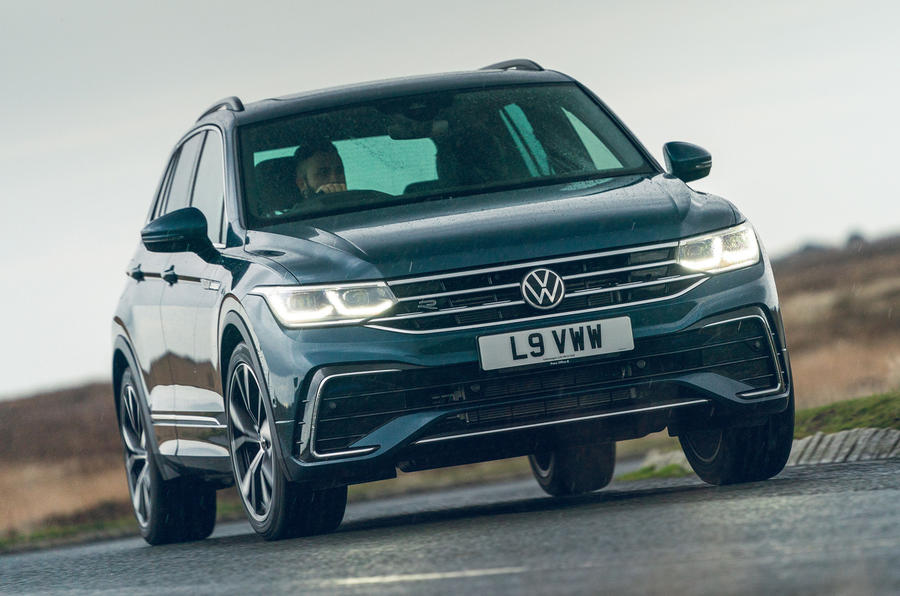
It’s not exactly what you’d call quick off the mark, either, lumbering from 0-100km/h in 9.3sec, so there’ll be no gap-chasing in traffic nor sprinting between traffic lights. The Tiguan’s diesel option is paired exclusively with a seven-speed DSG automatic, which slips effortlessly between ratios on the open road but feels lethargic in stop-start operations, holding each cog for a tad too long at the top of the rev range, before offering up another all too suddenly. Even when pushing on, kickdown appears to elicit more noise than anything else, and while the illuminated S at the base of the shifter might catch the keen driver’s eye, Sport mode fails to tangibly extract any zip or verve from that four-pot motor.
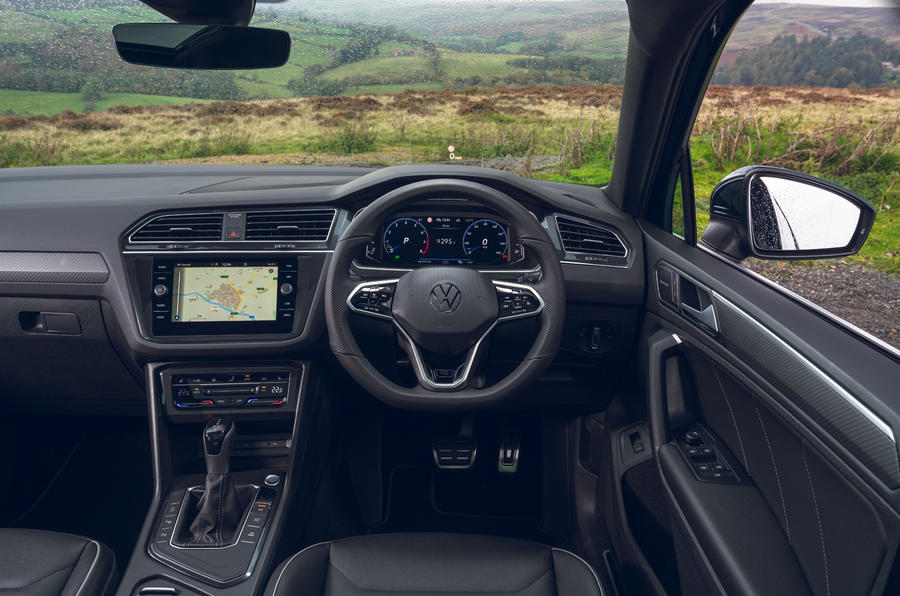
Means of propulsion aside, this latest iteration of the Tiguan passes as a convincing value alternative to more ostensibly premium-oriented rivals. Say what you will about the gradual extinction of physical controls, but it doesn’t half make for an upmarket interior vibe (albeit one that’s harder to appreciate when you’re trying to turn the fan down at 110km/h but keep activating the heated seat or demisting the windscreen). Our joint-top-rung trim test car’s panoramic sunroof made the cabin feel distinctly larger, while the plush dual-fabric seats felt sufficiently sized and bolstered to make long-distance driving the pleasurable experience you’d no doubt seek when specifying such a car. There’s little to take issue with in terms of material quality either, though the splashes of carbonfibre-effect trim might make more sense on the more aggressively styled R Line model.
Swipe-tastic dashboard and airy cabin aside, it’s hard to escape the notion that this diesel version of Volkswagen’s SUV stalwart has become a bit of a dinosaur.
As facelifts go, this is among the more significant of late, bringing welcome and noticeable improvements to the Tiguan’s styling, interior and range structure, but the increasingly apparent drawbacks of the diesel option make it harder than ever to recommend, despite its long-range refinement.
Felix Page




